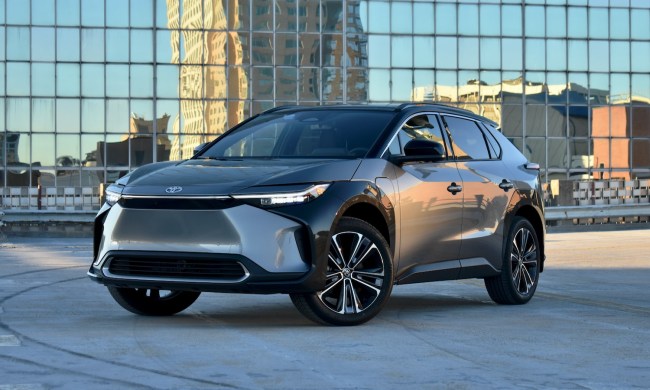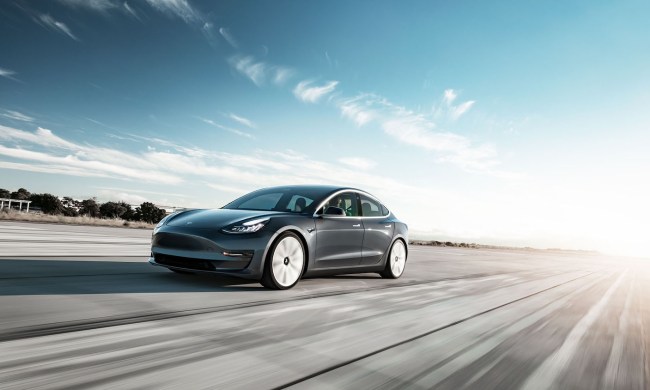
Toyota has been slower to embrace electric cars than other automakers, but the Japanese giant may soon catch up. Plans to introduce more electric cars and a potentially game-changing battery technology have been accelerated, Toyota recently announced.
A goal to sell 5.5 million electrified vehicles has been moved up by five years, from 2030 to 2025. Toyota’s definition of “electrified” includes battery-electric cars, hydrogen fuel-cell cars, and hybrids. Key to reaching that goal will be the introduction of solid-state batteries, which Toyota believes could happen as soon as 2020 — two years earlier than originally planned.
“If possible, by the time we have the Olympic games next year, we would like to make sure that a solid-state battery can be unveiled to the public,” Toyota research and development boss Shigeki Terashi said during a recent presentation on the automaker’s electrification plans.
Solid-state batteries use a solid electrolyte, hence the name, in place of the liquid electrolyte used in the lithium-ion batteries that power all modern electric cars. Proponents of solid-state batteries claim they will offer greater energy density, meaning more electricity can be crammed into a given volume. That will allow automakers to increase the range of electric cars without having to make battery packs bigger. Solid-state electrolytes are also expected to be nonflammable, unlike current lithium-ion batteries.
In January, Toyota announced a joint venture with Panasonic (which currently supplies batteries to Tesla) to manufacture batteries, including solid-state designs. Toyota is also partnering with Subaru to develop a new platform for electric cars. It’s a major shift for Toyota, which, despite its experience with hybrids, hasn’t shown much enthusiasm for cars powered entirely by batteries until now.
Toyota sold two generations of the RAV4 EV, but that model was designed to meet California’s zero-emission vehicle mandate. The automaker has championed hydrogen fuel cells as an alternative to batteries, developing everything from the Mirai sedan to fuel-cell trucks and buses. But hydrogen infrastructure has been slow to develop, and Toyota needs to meet stricter emissions standards, particularly in China. So the automaker is giving batteries another try.
Toyota isn’t the only automaker investigating solid-state batteries. Volkswagen and BMW have invested in solid-state battery startups QuantumScape and Solid Power, respectively. Fisker believes solid-state batteries will allow its EMotion electric car to travel more than 500 miles on a charge. But as with any new technology, promising test results may not translate into success on a commercial scale.


